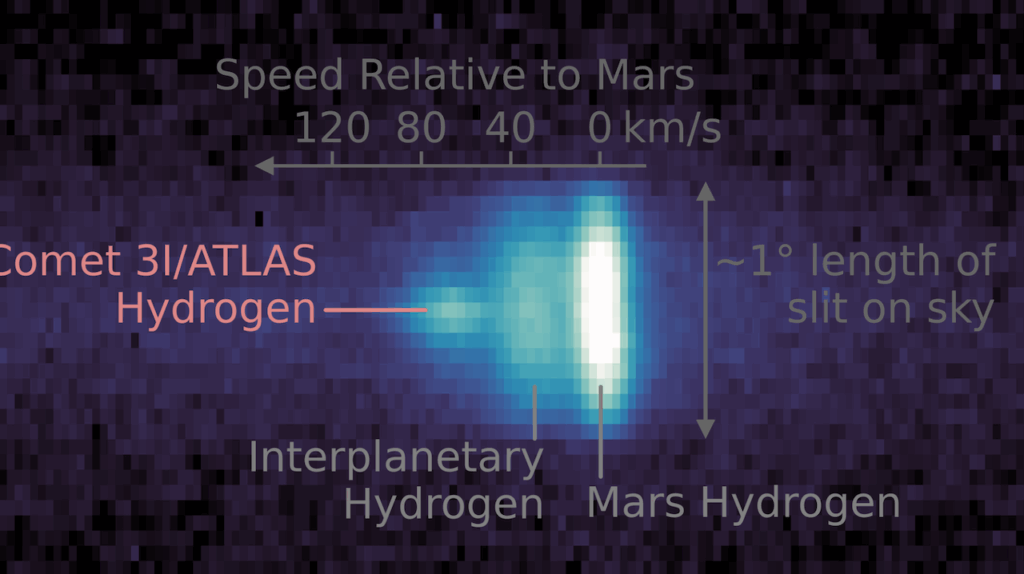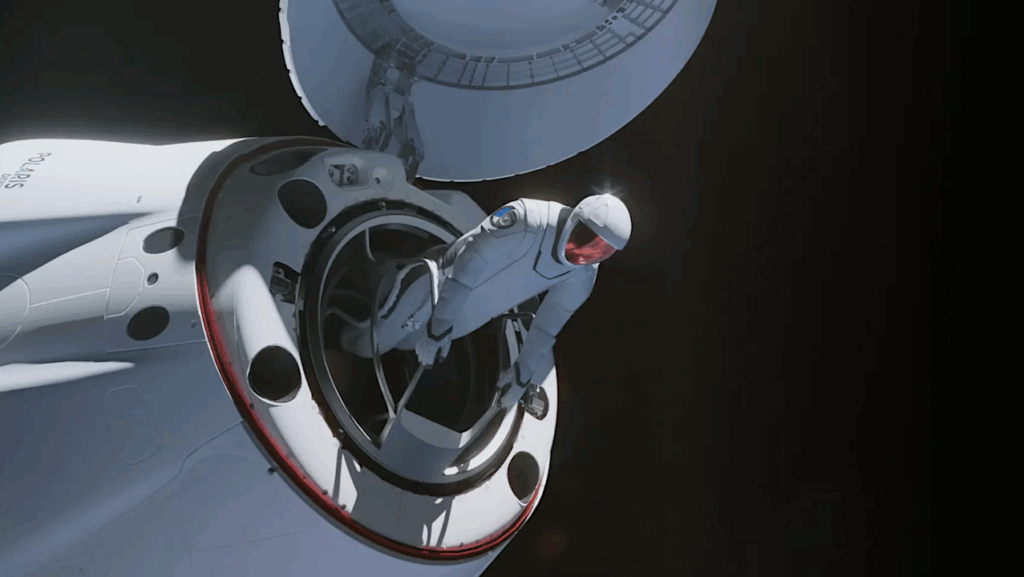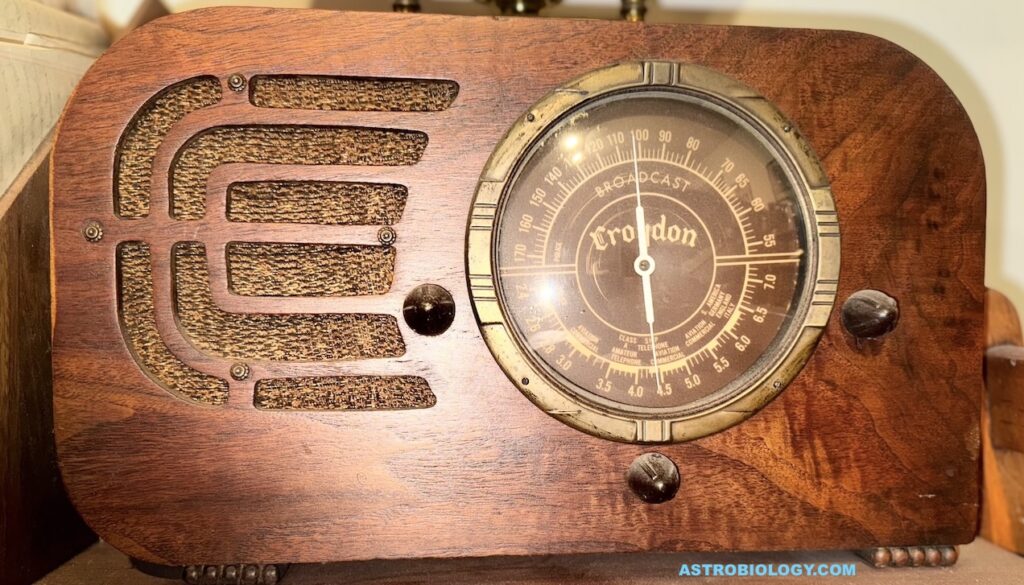MSFC Astrobiologist's Shaky Claim: He's Found Life in A Meteorite (Updated)
 Life in meteorites? Study stirs debate, MSNBC
Life in meteorites? Study stirs debate, MSNBC
“Many scientists have examined thousands of meteorites in detail over the past 50 years without finding any evidence of fossil life,” David Morrison, senior scientist at the NASA Astrobiology Institute at Ames Research Center, told me in an e-mail. “Further, we know a great deal about the conditions on the parent objects of the meteorites, which (not counting the few meteorites from the moon and Mars) were rather small, not at all like planets. “I would therefore invoke Carl Sagan’s famous advice that extraordinary claims require extraordinary evidence. At a bare minimum this would require publication in a prestigious peer-refereed scientific journal — which this is not. Cyanobacteria on a small airless world sounds like a joke. Perhaps the publication came out too soon; more appropriate would have been on April 1,” Morrison said.”
NASA Scientist Sees Signs of Life in Meteorites, New York Times
“The buzz is building over a paper by Richard Hoover, an award-winning astrobiologist at NASA’s Marshall Space Flight Center, concluding that filaments and other features found in the interior of three specimens of a rare class of meteorite appear to be fossils of a life form strongly resembling cyanobacteria. Chemical analysis, Hoover argues, shows no evidence that the fossils are of organisms that infiltrated the meteorites after they arrived on Earth.”
NASA Scientist Claims Evidence of Alien Life on Meteorite, Fox
“Other scientists tell FoxNews.com the implications of this research are shocking, describing the findings variously as profound, very important and extraordinary. But Dr. David Marais, an astrobiologist with NASA’s AMES Research Center, says he’s very cautious about jumping onto the bandwagon. These kinds of claims have been made before, he noted — and found to be false. “It’s an extraordinary claim, and thus I’ll need extraordinary evidence,” Marais said.”
 Keith’s note: Richard Hoover is a NASA employee – and has received NASA funds to do astrobiology research. Hoover cites several NASA employees and NASA facilities used in support of this research. Yet NASA has been silent thus far about the claims Hoover makes in this latest paper – claims he makes overtly using his “NASA” affiliation. Did Hoover fill out NASA Form 1676 or get internal review or permission at NASA MSFC to publish this paper?
Keith’s note: Richard Hoover is a NASA employee – and has received NASA funds to do astrobiology research. Hoover cites several NASA employees and NASA facilities used in support of this research. Yet NASA has been silent thus far about the claims Hoover makes in this latest paper – claims he makes overtly using his “NASA” affiliation. Did Hoover fill out NASA Form 1676 or get internal review or permission at NASA MSFC to publish this paper?
Given the way that NASA SMD stumbled and mishandled recent stories related to Arsenic-based life forms and “habitable planets” found by Kepler, it will be curious to see if SMD and/or the NASA Astrobiology Institute say anything at all. Not doing so now will allow media speculation (and misinformation) to run rampant by default – thus leading to the inevitable big public mea culpa down the road. The question remains: Does NASA support Hoover’s research? If so, then is there a proposal he submitted to NASA to obtain funding – and why is NASA silent? If not, then why is this research being done with a NASA affiliation using NASA facilities – and (again) why is NASA silent?
There is another thing that has me a little confused. This NASA MSFC web page from 2007 lists Hoover as having a Bachelor’s degree and working in the Astrobiology Laboratory as a “scientist”. The NASA MSFC Solar Scientists page lists Hoover as “Mr. Richard B. Hoover”. Yet this NASA MSFC web page from 2005 (two years earlier) refers to him as “Dr. Richard Hoover”. Which is it? Usually one gets their B.Sc. degree before their Ph.D. – not the other way around. In his paper Hoover refers to himself as “Richard B. Hoover, Ph.D. NASA/Marshall Space Flight Center, Huntsville, AL”. I cannot seem to find an online CV for Hoover that lists where he got his Ph.D. This 1992 NASA press release only says that he “graduated with honors from Henderson State University in Arkadelphia, Ark., in 1964 with a bachelor of science degree in physics and mathematics.” He was hired by NASA in 1966. Its always possible to get a Ph.D. later in life but it would seem a little odd that NASA MSFC would put someone in charge of their astrobiology work and fund them if they only had a Bachelors degree – in Physics and Mathematics.
 Keith’s update: The Journal of Cosmology where Richard Hoover’s paper appears is published by the same person who publishes this website at http://brainmind.com/ – scroll down. WARNING: do not go any further on a government or company computer i.e. Not Safe for Work.
Keith’s update: The Journal of Cosmology where Richard Hoover’s paper appears is published by the same person who publishes this website at http://brainmind.com/ – scroll down. WARNING: do not go any further on a government or company computer i.e. Not Safe for Work.
Life in meteorites? Study stirs debate, MSNBC
“Rudy Schild, the astrophysicist at the Harvard-Smithsonian Center for Astrophysics who is also the editor-in-chief of the Journal of Cosmology, sent this open letter via e-mail today: “… On the other hand, Dr. Hoover’s article, and the lack of scholarly, critical dispute, may be an indication of a paradigm shift; similar to the realization that Earth was not flat nor the center of the Universe. What I mean is: Most scientists and perhaps most of the public realize life must be everywhere throughout the cosmos and not just confined to Earth, and Dr. Hoover’s paper simply confirms what most already suspect.”
Is this “Journal” the sort of place that taxpayer-funded research should be published? How could NASA possibly sanction this? Or is Richard Hoover a rogue operating outide the rules and norms of professional behavior under which all other scientists working with/for NASA chose to act?
Journal of Cosmology Going Out with Big Bang, David Dobbs’s Somatic Marker
Cites a “press release” that says “Journal of Cosmology To Stop Publishing–Killed by Thieves and Crooks – JOC will publish its last edition in May of 2011.”
Has Evidence for Alien Life Been Found?, Ian O’Neill , Discovery News
“This research is certainly exciting, but my first reaction was skepticism even before I’d looked at the paper. Why has this research been published in the Journal of Cosmology? Why isn’t the news plastered across the front page of NASA’s website? Surely something that claims to be of this groundbreaking, historic significance should be published in a major science journal (not a troubled online journal that has announced it is going out of business this year)? Did the most reputable journal of all, Science, turn this research away? If so, why?”
Did scientists discover bacteria in meteorites?, pharyngula, ScienceBlogs
“I’m looking forward to the publication next year of the discovery of an extraterrestrial rabbit in a meteor. While they’re at it, they might as well throw in a bigfoot print on the surface and chupacabra coprolite from space. All will be about as convincing as this story. While they’re at it, maybe they should try publishing it in a journal with some reputation for rigorous peer review and expectation that the data will meet certain minimal standards of evidence and professionalism.”
NASA Statement on Astrobiology Paper by Robert Hoover
“NASA is a scientific and technical agency committed to a culture of openness with the media and public. While we value the free exchange of ideas, data, and information as part of scientific and technical inquiry, NASA cannot stand behind or support a scientific claim unless it has been peer-reviewed or thoroughly examined by other qualified experts. This paper was submitted in 2007 to the International Journal of Astrobiology. However, the peer review process was not completed for that submission. NASA also was unaware of the recent submission of the paper to the Journal of Cosmology or of the paper’s subsequent publication. Additional questions should be directed to the author of the paper.” – Dr. Paul Hertz, chief scientist of NASA’s Science Mission Directorate in Washington







